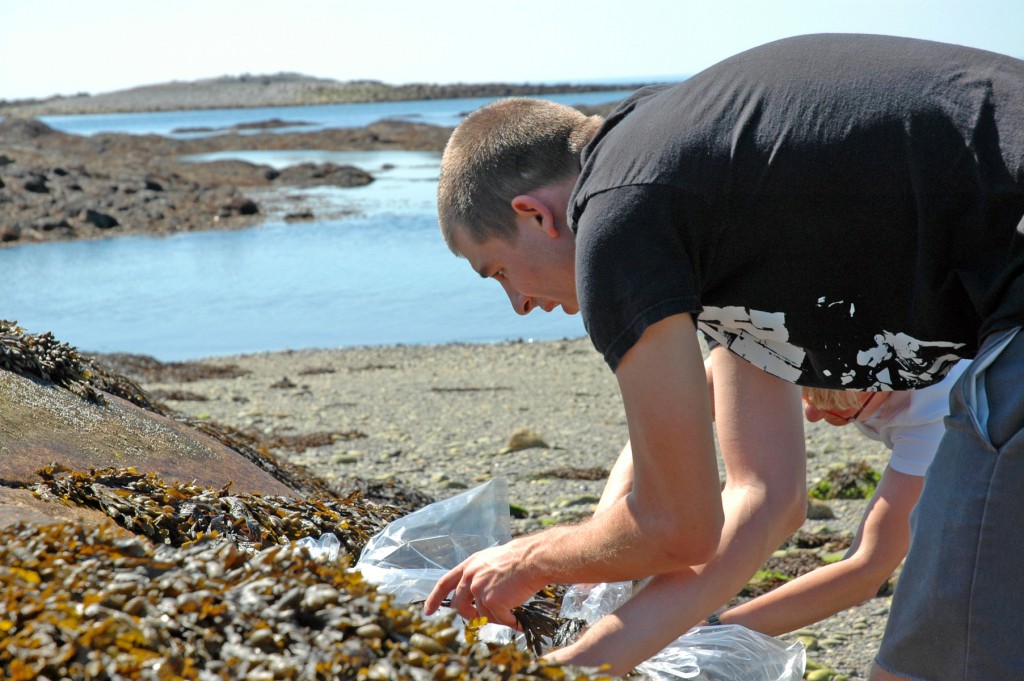Within a short walk or drive from our Biddeford Campus, you may explore a variety of unique habitats, including UNE’s 350 acres of contiguous forest. The State of Maine’s Natural Areas Program has labeled the land a habitat of significant value due to its high density of pocket swamps and vernal pools. The area is comprised of both uplands and wetlands and is home to many species, including wild turkeys, deer, coyotes, and moose.
Our Biddeford Campus is your stepping stone to some of Northern New England’s most intriguing ecosystems.
local habitats

Our campus offers the chance to explore the lush coast and rich woodlands of Southern Maine.
- UNE Nature Trail: our trail system on campus runs along the Saco River.
- UNE's 350+ acres of forest: explored in many classes, is also great for mountain biking.
- Basket and Stage Islands: accessible at low tide over the sand flats.
- East Point Bird Sanctuary: owned by the Audubon Society with views of Wood Island lighthouse.
- Biddeford Pool: the largest tidal pool in Maine, great for observing coastal wildlife.
- The Saco Heath: a raised peatland (bog), home to the carnivorous pitcher plants (protected by the Maine Chapter of the Nature Conservancy).
- Clifford Park: a 52-acre woodland preserve owned by the city of Biddeford, great for mountain biking and cross country skiing.
REGIONAL HABITATS

These protected lands serve as ideal day-trips from our campus.
- Mount Agamenticus Conservation Region: 10,000 acres of biodiverse undeveloped forest.
- Rachel Carson National Wildlife Refuge: a national wildlife refuge that spans 50 miles of coastline between York and Cumberland counties.
- The Wells National Estuarine Research Reserve expands our knowledge about coasts and estuaries with an emphasis on ensuring healthy salt marsh ecosystems.
- White Mountain National Forest: 800,000 acres of federally managed forest and mountains in western Maine and New Hampshire. A 75-minute drive from campus.
- Acadia National Park: Comprised of a cluster of islands on the Maine coast, Acadia is positioned within the broad transition zone between eastern deciduous and northern coniferous forests and hosts several species and plant communities at the edge of their geographic range. A 3.5-hour drive from campus.
Apply Now or Request Information
B.S. Programs
Apply online for one of our bachelor of science programs or request more information.on a program.
M.S. Program
Apply online for our master of science in Biological Sciences or request more information on the program.
Undergraduate Student Research
Find out more about undergraduate student research and scholarship opportunities.
College of Arts and Sciences Research Opportunities
Westbrook College of Health Professions Research Opportunities
